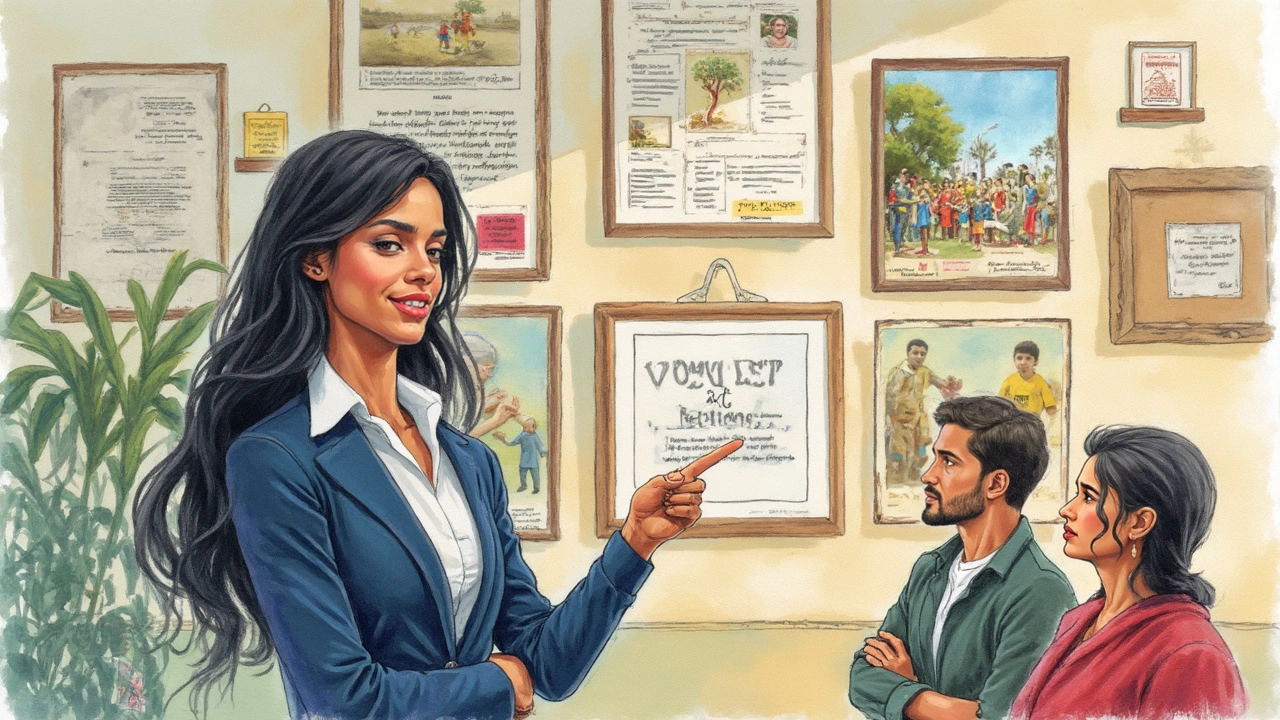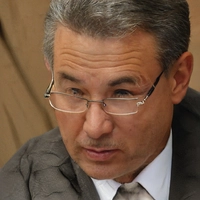Ever spend hours volunteering and then wonder if companies actually care? You’re not alone—lots of people hope their time helping out at local shelters or coding for nonprofits does more than just make them feel good. The honest truth: sometimes volunteering is a game-changer for your job search, but sometimes it just fills space on your resume.
So, what really makes employers take notice? It’s not just any kind of volunteering. Companies are looking for the stuff that shows you’ve picked up skills you can actually use in real work. Think organizing a big fundraiser, leading projects, or picking up technical skills, not just handing out flyers. The more your experience matches what a company is looking for, the more heads you’ll turn.
- Why Companies Notice Volunteering
- What Looks Good on a Resume
- When Volunteering Doesn't Matter
- How to Talk About It in Interviews
- Tips to Boost Your Impact
- Real Examples and Common Mistakes
Why Companies Notice Volunteering
If you’ve ever listed your volunteering gigs on your resume and wondered if anyone pays attention, good news—employers really do notice it. But let’s talk about why. It’s not because they’re feeling sentimental. It’s because volunteering can show off exactly what they want: skills, motivation, and the ability to work with others. Surveys from LinkedIn back it up—according to a 2023 LinkedIn study, 41% of hiring managers say they value volunteer work as much as paid work.
Companies see volunteering as a sign you’re proactive. You’re not just clocking in and out—you’re actually out there building new skills on your own time. They also see it as proof you care about more than just a paycheck. That kind of attitude stands out in a pile of resumes.
Here’s what really grabs attention:
- You’re developing or using skills that matter for the job, like teamwork, communication, problem-solving, or leadership.
- You’re volunteering at well-known organizations or taking on roles with real responsibility.
- You’ve stuck with a volunteer opportunity for a while, showing commitment—no one’s interested in a list of one-day stints.
Some bigger names in business—think Google and Salesforce—have even built questions about volunteering into their hiring process. Why? Because they’re betting that people who get involved outside of work are likely to bring good energy and creativity to the office.
| Reason Companies Notice | How it Helps You |
|---|---|
| Shows real-world skills | Makes your resume less generic |
| Reveals your passion | Signals a potential culture fit |
| Highlights leadership or initiative | Puts you ahead when competing with similar candidates |
The thing to remember: volunteering matters, but only if you show what you did and how it connects to what companies actually need. It’s not about having the longest list; it’s about the impact you made and how you spin it.
What Looks Good on a Resume
When it comes to adding volunteering to your resume, not all experiences are created equal. Recruiters and hiring managers aren’t just looking for a warm, fuzzy feeling—they want to see skills and stories that fit what their company needs. If you can show impact, leadership, or hands-on work that lines up with the job, you grab their attention way faster.
One thing that really shines? Leadership. If you led a project, organized an event, or managed a group—even if just at a local club or animal shelter—don’t just say you “volunteered.” Spell out your role. Example: “Coordinated a team of 12 volunteers to run a food drive that collected 2,000 pounds of food in two weeks.” That paints a clear picture and proves you know how to get things done.
Here’s the stuff that tends to impress employers looking at job search materials:
- Relevant skills: If you gained technical skills, public speaking chops, fundraising know-how, or project management experience, list those specifically. Don’t just list duties; list what you learned and achieved.
- Big wins: Measurable results make a difference. A number, percentage, or quick before-and-after comparison helps. Example: “Increased donations by 30% over last year.”
- Commitment: Volunteering for a weekend is nice, but longer commitments show grit. Serving as a tutor every week for a year? That jumps out way more than a one-time event.
- Recognition: If you received awards, special mentions, or promotions within your volunteer opportunities, mention them. It helps your application stand out from the crowd.
- Alignment with job/industry: Volunteering in a spot related to your desired job—like coding for a nonprofit if you want a tech gig—makes your resume tips even more spot-on.
Here’s a quick look at what hiring managers pointed out in a 2023 LinkedIn survey when asked what type of volunteering caught their eye:
| Type of Volunteer Activity | % Noticed by Employers |
|---|---|
| Leadership/Project Management | 72% |
| Technical/Job-Related Skills | 59% |
| Event Planning | 38% |
| Regular Long-Term Involvement | 33% |
| One-time Volunteering | 14% |
Bottom line: line up your career advice with clear, detailed stories about your impact. Avoid vague claims; focus on real results and skills that relate to the job you want.
When Volunteering Doesn't Matter
Let’s get real—companies care about results, not just good intentions. There are times when your volunteering just doesn’t move the needle in your job search. If your volunteer gig has zero connection to the job you’re going for, it’ll probably get passed over fast. For example, if you want a job in software engineering but all your volunteer work is dog walking, that’s not going to impress hiring managers.
Big brands and hard-driving startups usually want to see impact or skill match. Simply listing random roles like “food bank volunteer” without showing what you actually did (led a team, used Excel, improved process, etc.) leaves people shrugging. A 2023 LinkedIn survey found that only 18% of recruiters care about generic volunteer opportunities if they can’t tie the experience to key skills.
Here are a few times volunteering might not matter for resume tips or career advice:
- It’s the only experience you have, but it’s in a totally different field than the job you want.
- You “volunteered” one afternoon a year for a selfie, not really getting involved.
- You don’t mention any results, skills learned, or impact you made.
- You make it sound like a hobby, not a real commitment or learning experience.
- No details—just the organization and the year. No one knows what you contributed.
Think about it from the company’s side. They have hundreds of resumes to scan. If your volunteering doesn’t stick out or relate to the career path you’re aiming for, it’s probably heading to the “maybe” or “no” pile fast.

How to Talk About It in Interviews
Bringing up your volunteering experience in an interview isn’t just about listing what you did. Think of it as a way to show what you’re actually good at, and how it fits with the company’s needs. Most hiring managers say they care about real-life skills more than just a long checklist of activities. A LinkedIn survey from 2024 found that 41% of hiring managers see relevant volunteer work as just as valuable as paid experience when judging candidates—especially for folks early in their careers.
The trick is connecting what you did during your volunteer opportunities to the job you want. Here’s how you can nail it:
- Focus on skills, not titles. Instead of just saying you "volunteered at a local food bank," talk about organizing donation drives, managing supplies, or training new volunteers. Hiring managers love clear skills like leadership, problem-solving, and teamwork because they translate straight to the workplace.
- Share outcomes. Say how your actions made a difference. Did your team collect 30% more food this year? Did you train five new people? Numbers make your story stick.
- Connect the dots. Link what you learned directly to the job you’re after. For example, if you want a marketing role and you ran social media for a nonprofit, talk about growing their followers or launching campaigns—these are resume tips hiring managers notice.
- Keep it relevant. Don’t force every detail. If you’re applying for a tech job, highlight projects where you used those skills—even if the cause is totally different from the company’s work.
Interviewers usually respond well to stories that show you can deal with real problems and step up when it counts. Want to make your story hit harder? Use the STAR method—explain the Situation, Task, Action, and Result. If you organized a 200-person event with zero budget, break down each step and the impact it had. People remember details, not just broad statements.
| Interview Tip | Why It Works |
|---|---|
| Share numbers or specific facts | Proof backs up your story and shows results. |
| Talk about teamwork or leading others | Most companies prize these real-world skills. |
| Link your work to the job description | Makes it obvious how you’ll fit in. |
Bottom line: treat your volunteer work the same way you would a regular job in an interview. If you can show how your experience makes you a better fit, companies will care way more about what you did—and so will you.
Tips to Boost Your Impact
If you want your volunteering to work double-duty on your resume, you can't just show up and hope for the best. There's a way to volunteer smarter, not just harder.
First up, think about your career goals. Grab opportunities that match where you want to go. For example, if you're eyeing a tech job, look for volunteer opportunities with coding, social media, or digital events. If you're after management roles, get involved leading teams or organizing fundraisers. Employers notice when your volunteer work lines up with your industry.
Next, track results—the numbers matter. Did you raise $2,000 for a local nonprofit? Did you organize a group of 50 volunteers? Hiring managers love specific achievements. There's actually research backing this up: According to LinkedIn's 2023 Workplace Learning Report, 41% of hiring managers said they look for clear, measurable impact in volunteer experiences.
| Skill | Percent of Recruiters Who Value It in Volunteering* |
|---|---|
| Leadership | 68% |
| Project Management | 61% |
| Problem Solving | 57% |
*Source: LinkedIn Workplace Learning Report, 2023
Don't forget to talk about your volunteering the same way you'd talk about a job. Focus on your role, what you accomplished, and the skills you picked up. When a recruiter sees concrete descriptions, they're way more likely to take it seriously.
If you’re stuck trying to level up your impact, here’s what you can do:
- Pick volunteer roles that use or build your professional skills.
- Ask for feedback, then use it to grow—reference that in your job search or interview.
- Document everything: numbers, positive changes, shoutouts from supervisors.
- Stay consistent—long-term involvement counts more than one-off stints.
One hiring manager at Google, Jess Lee, put it best:
"We see volunteering as valuable experience—especially when candidates can tell us what they learned and how it shaped their professional skills."
Bottom line: The more purposeful and relevant your volunteering is to your career and the role you want, the more it stands out. Treat it like real work experience, and it’ll pay off.
Real Examples and Common Mistakes
Want to see how volunteering can actually boost your job search? Let’s look at a couple of real stories. A marketing grad volunteered for a city food drive, heading up social media campaigns. When he landed interviews, he talked about real numbers—their posts brought in 1,000 extra donations compared to last year. He got hired at an agency, and later found out his hands-on experience made him stand out.
Another real example: an IT support volunteer for a nonprofit fixed their database issues and trained staff on basic tech skills. He put this under “Relevant Experience” on his resume instead of burying it at the bottom, showing he had both the technical and people skills the hiring manager wanted.
It’s not just about fancy titles or big organizations. People who organize local basketball leagues, set up fundraisers, or tutor kids in coding have something to talk about—just focus on what you accomplished instead of only listing the group you volunteered with.
Now, let’s get into some common mistakes folks make when trying to leverage their volunteer opportunities in their job hunt:
- Listing volunteer work with no context. Saying “Volunteered at Humane Society” doesn’t explain what you did. “Coordinated adoption events and increased attendance by 30%” tells a way better story.
- Burying the experience way at the end, as if it doesn’t count. If your volunteer work used skills you’ll need on the job, move it up to “Relevant Experience.”
- Getting too wordy. Employers don’t want a novel—they want highlights and impact. Bullet points help here.
- Forgetting to connect your volunteering to actual job requirements. If you’re applying for a job in finance but only talk about unrelated community service, hiring managers may not see the fit unless you spell it out.
Check out how much employers actually pay attention. A LinkedIn study in 2023 found that 41% of hiring managers said volunteer work is just as valuable as paid experience. But, here’s the catch: only when it’s relevant or shows measurable impact.
| Volunteer Activity | What Works | Common Mistakes |
|---|---|---|
| Fundraising for a charity | "Raised $5,000 in two months by organizing online campaigns." | "Helped with fundraising events." |
| Coaching youth sports | "Coached a basketball team that reached playoffs; mentored 30+ students." | "Volunteered as a coach." |
| Nonprofit IT support | "Migrated nonprofit’s website, cutting costs by 25%." | "Helped with IT." |
The takeaway? Make your resume and your stories specific. Employers want to see action, numbers, and connections to skills they actually need. Skipping these details is one of the easiest ways to get passed over—even when your volunteering was awesome.





